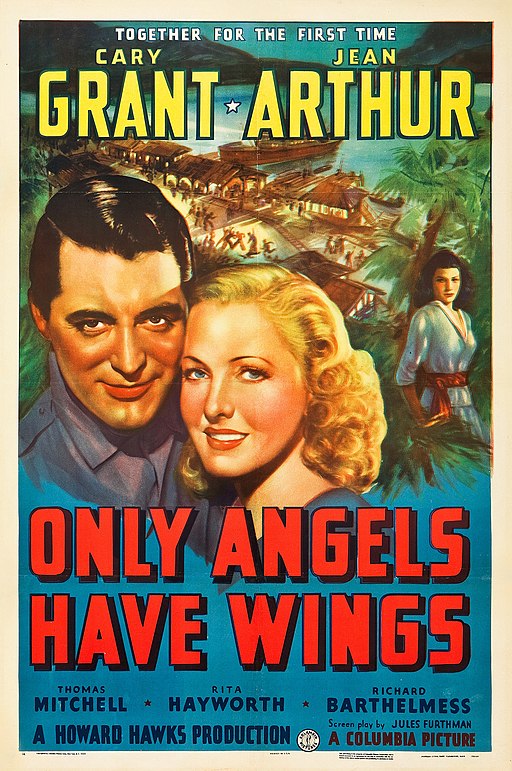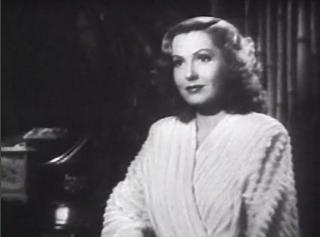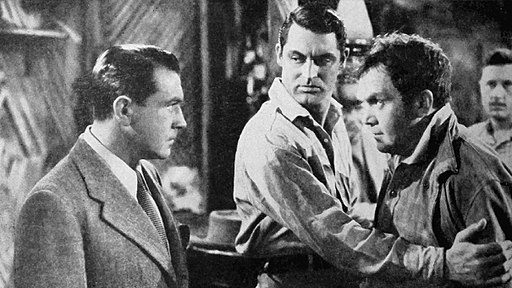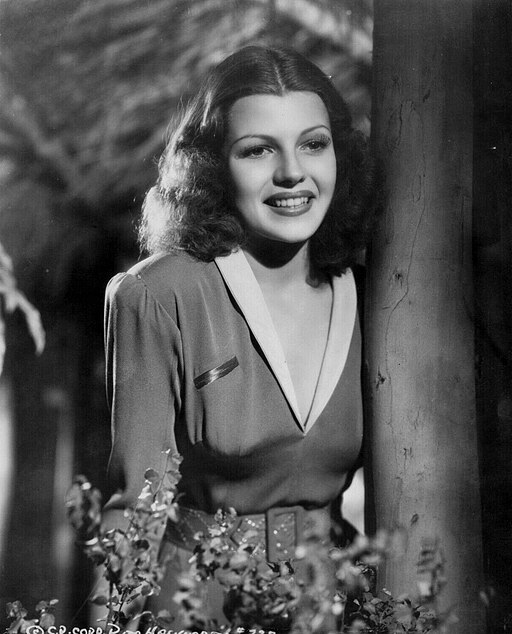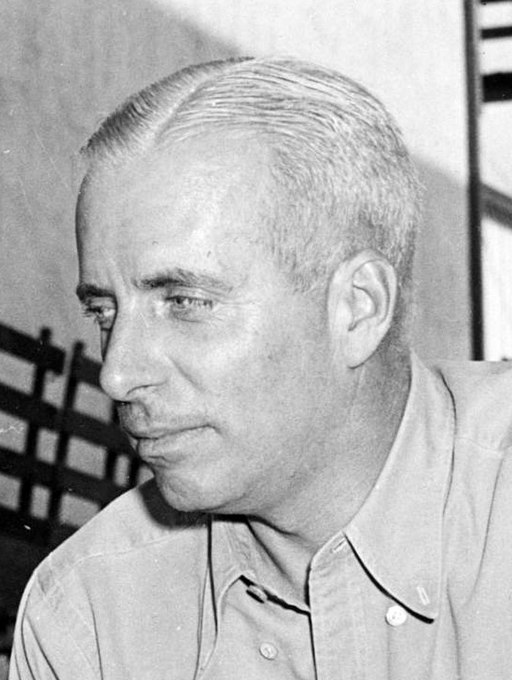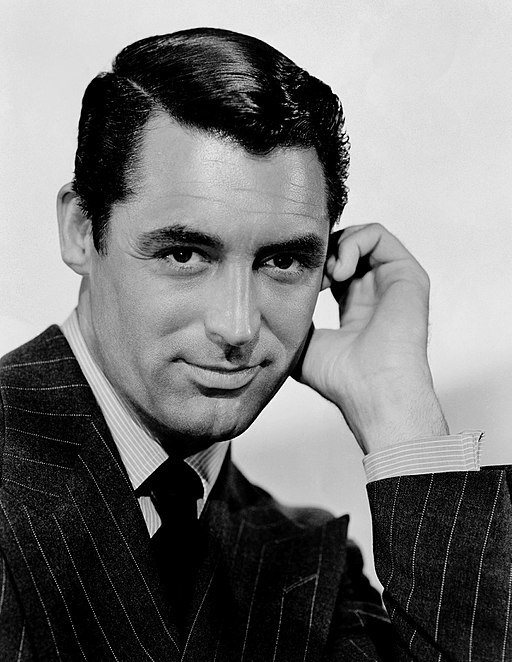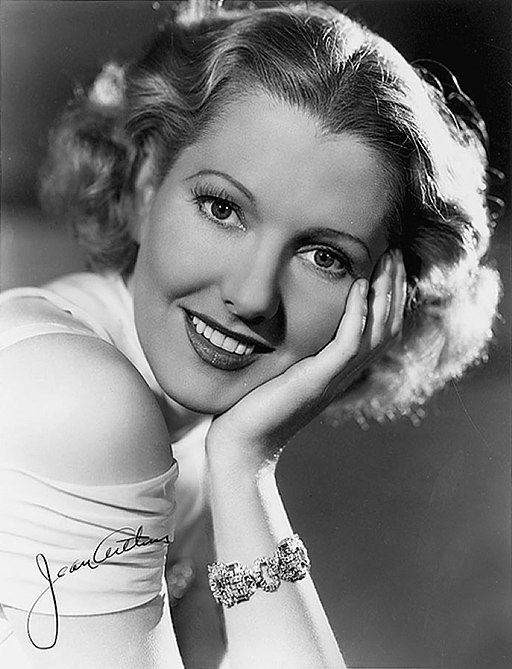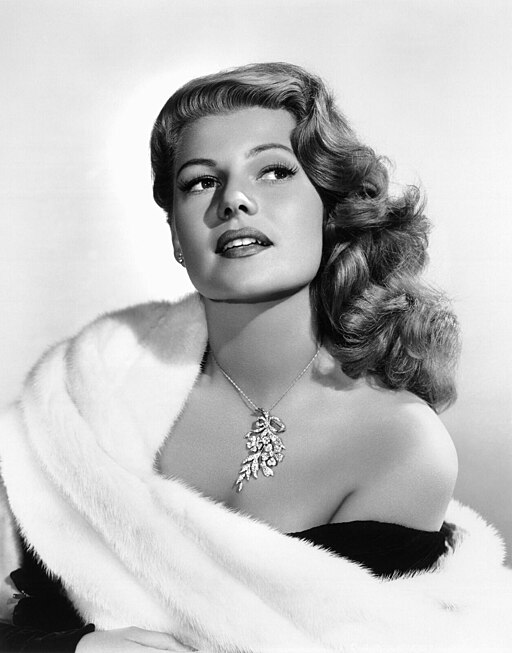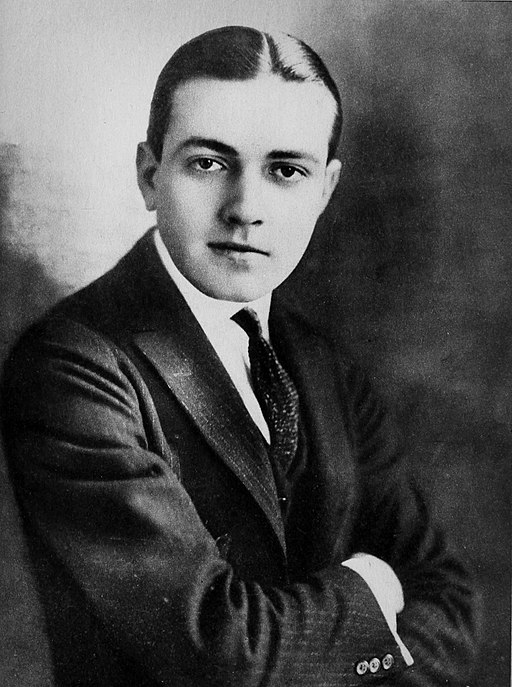Only Angels Have Wings - 1939
back| Released by | Columbia Pictures |
| Director | Howard Hawks |
| Producer | Howard Hawks |
| Script | Jules Furthman |
| Cinematography | Joseph Walker |
| Music by | Dimitri Tiomkin |
| Running time | 121 minutes |
| Film budget | Unknown |
| Box office sales | $1 million |
| Main cast | Cry Grant - Jean Arthur - Richard Barthelmess - Rita Hayworth |
Only Angels Have Wings
A Star-studded Adventure
"Only Angels Have Wings" is a classic adventure drama focusing on the lives and loves of a group of mail pilots based in a South American port town. The film combines elements of romance and drama with the high stakes of aviation at the time.
Related
Only Angels Have Wings – 1939
Summary
"Only Angels Have Wings" is set in the fictional South American port town of Barranca, where a small air freight company, run by Geoff Carter (Cary Grant), delivers mail and goods over the Andes Mountains, often in dangerous weather conditions. The film opens with the arrival of Bonnie Lee (Jean Arthur), a traveling entertainer who quickly becomes entangled in the lives of the pilots. Bonnie is both fascinated and horrified by the stoic and sometimes harsh manner in which the pilots and Geoff, in particular, accept the constant danger of death.
The narrative unfolds around several key events, including aerial missions that showcase the dangers faced by the pilots. Geoff's leadership qualities and his stringent, emotionally detached approach are tested with the arrival of Bat MacPherson (Richard Barthelmess), a pilot with a notorious past who is trying to escape it with his wife, Judy (Rita Hayworth), who happens to be Geoff’s former lover.
As the story progresses, the pilots face several crises, including treacherous weather flights, mechanical failures, and personal vendettas. Through these trials, Bonnie grows closer to Geoff, understanding the complexity of his character and the burdens of leadership he carries. The film climaxes with a perilous mission through a dangerous mountain pass that requires self-sacrifice, bringing the themes of duty and courage to the forefront.
Analysis
Howard Hawks masterfully blends elements of romance, adventure, and drama to explore the human condition under extreme pressure. The director uses the hazardous profession of the pilots to probe themes of camaraderie, heroism, and existential indifference towards life's fragility.
Character Development: Cary Grant’s portrayal of Geoff illustrates a man who masks his fears and vulnerabilities with a tough exterior, embodying the archetypal Hawksian hero who is competent and professional but emotionally reserved. Bonnie Lee’s character provides a contrast, bringing warmth and empathy to the harsh environment. Her interactions with Geoff and the other pilots bring emotional depth to the narrative, highlighting the human cost of their risky lifestyle.
Symbolism and Motifs: Aviation serves as a potent symbol throughout the film, representing both the technological progress of the era and the human ambition and recklessness driving it. The unpredictable weather and harsh landscapes are metaphors for the internal and external challenges faced by the characters, emphasizing the themes of human versus nature and fate.
Cinematography and Setting: Joseph Walker’s cinematography is pivotal in conveying the tension and danger of the flying sequences. The use of miniatures and rear projection was innovative for the time, effectively creating a realistic depiction of the aerial stunts that are central to the film’s drama.
Music and Sound: Dimitri Tiomkin’s score enhances the emotional resonance of the film, using music to underscore critical moments of tension and release. The sound design, particularly in the flying scenes, adds a layer of immersive realism that was quite advanced for films of that era.
In conclusion, "Only Angels Have Wings" is a study in contrasts — between the adventurous life-threatening endeavors of the pilots and their personal emotional battles. Hawks uses the backdrop of aerial freight service to explore larger human themes, making the film a timeless exploration of courage, loss, and redemption. The interplay of personal relationships within the professional demands of flying creates a rich narrative that continues to resonate with audiences today.
Classic Trailer from Only Angels Have Wings:
Full Cast:
- Cary Grant as Geoff Carter
- Jean Arthur as Bonnie Lee
- Richard Barthelmess as Bat MacPherson
- Rita Hayworth as Judy MacPherson
- Thomas Mitchell as Kid Dabb
- Allyn Joslyn as Les Peters
- Sig Ruman as Dutchy
- Victor Kilian as Sparks
- John Carroll as Gent Shelton
- Don Barry as Tex Gordon
- Noah Beery Jr. as Joe Souther
- Milisa Sierra as the Innkeeper
- Lucio Villegas as Dr. Serrano
- Pat Flaherty as Mike
- Pedro Regas as Pancho
Analysis of the Direction of Howard Hawks:
Howard Hawks is widely recognized for his versatile directorial style, and his work in "Only Angels Have Wings" (1939) is a quintessential example of his ability to blend action, drama, and romance into a coherent and engaging narrative. Hawks' direction in this film showcases several hallmark traits that contribute to his reputation as one of Hollywood’s most robust and effective filmmakers.
Mastery of Genre
Hawks was known for his adeptness across various genres, and in "Only Angels Have Wings," he seamlessly integrates elements of adventure, drama, and romance. The film’s setting and plot allow him to explore the tension and excitement of aerial stunts while grounding the action in complex character dynamics. This balance keeps the audience engaged not just with the spectacle of flight but with the emotional stakes attached to each character.
Character-Driven Storytelling
Hawks' films often revolve around groups of professionals defined by their competence and moral codes, and "Only Angels Have Wings" is no exception. Hawks focuses on the inner lives of his characters, portraying them as flawed but fundamentally decent individuals striving to uphold their personal and professional ethics in challenging circumstances. His direction ensures that each character, from Geoff Carter (Cary Grant) to Bonnie Lee (Jean Arthur), is fully developed, providing a deep dive into their motivations and transformations.
Collaborative Approach
Hawks was known for his collaborative approach to filmmaking, often allowing actors to improvise dialogue to capture more naturalistic performances. This technique is evident in the film’s crisp, overlapping dialogue, which enhances the realism of the interactions and deepens the immersive experience of the narrative. His ability to draw nuanced performances from his actors helps in building a believable world where each conversation adds layers to character development and plot advancement.
Technical Precision
In "Only Angels Have Wings," Hawks' technical skill is prominently displayed through the execution of complex flying sequences, which required precise coordination of actors, stunt pilots, camera work, and special effects. His meticulous attention to detail ensures that these sequences are not only thrilling but also integral to the storyline, reflecting the characters' internal conflicts and the physical dangers they face.
Use of Setting and Atmosphere
Hawks uses the setting of a remote South American town not just as a backdrop but as a character in its own right. The harsh, unpredictable weather and rugged terrain are constant threats and shape the daily lives and decisions of the characters. Hawks’ direction amplifies the sense of isolation and danger that permeates the film, enhancing the tension and stakes of the narrative.
Emotional Depth
Despite the action and adventure, Hawks never loses sight of the emotional core of the film. His portrayal of romance and camaraderie among the characters provides a counterbalance to the perilous flights and professional challenges they face. This emotional depth makes the characters’ successes and sacrifices resonate more deeply with the audience, a testament to Hawks’ skill in creating compelling, multifaceted narratives.
In conclusion, Howard Hawks' direction in "Only Angels Have Wings" exemplifies his distinctive style, marked by a synthesis of genre, a focus on character integrity, collaborative dynamism, technical prowess, atmospheric use of setting, and emotional sophistication. His work not only entertains but also provides insight into human resilience and interdependence, leaving a lasting impact on the viewer.
Analysis of the Performance of Cary Grant:
Cary Grant's performance in "Only Angels Have Wings" is a standout element of the film, showcasing his ability to blend charm, depth, and complexity into a compelling character portrayal. As Geoff Carter, the tough, no-nonsense leader of a remote airfreight operation, Grant delivers a nuanced performance that highlights his range and solidifies his status as one of Hollywood's leading men.
Charismatic Authority
Grant's portrayal of Geoff Carter is marked by a charismatic authority that commands attention whenever he appears on screen. His confident, assertive demeanor reflects the character's leadership qualities and his pivotal role in maintaining the morale and discipline of his team. Grant's charisma is not just in the assertiveness of his character but also in the subtle displays of vulnerability that he allows to seep through his tough exterior. This balance adds a layer of complexity to his role, making him both admirable and relatable.
Subtle Emotional Range
One of Grant's strengths in this film is his ability to convey a broad emotional range through subtle expressions and gestures. His character often masks his feelings due to the nature of his dangerous job, which requires maintaining a stoic façade. Grant masterfully reveals Geoff's internal struggles through brief moments of softness, especially in scenes with Jean Arthur, who plays Bonnie Lee. His changes in tone, slight smiles, and fleeting looks provide windows into Geoff's inner life, revealing his fears, affections, and uncertainties.
Romantic and Dramatic Chemistry
Grant's interactions with Jean Arthur are crucial to the film, as their romantic subplot provides a humanizing counterpoint to the high-stakes aviation scenes. Grant's chemistry with Arthur is palpable; he balances Geoff's rough exterior with moments of tenderness and warmth that make their relationship dynamic and believable. This chemistry not only enhances the romantic elements of the story but also deepens the audience's investment in their emotional journeys.
Physicality and Presence
Grant's physical presence in the film is integral to his portrayal of a pilot and leader. He carries himself with a casual yet controlled demeanor that fits well with the adventurous and risky nature of flying. His movements are deliberate and poised, whether he's navigating the rough terrain of the airfield or piloting an aircraft. This physicality reinforces his character's competence and unspoken authority, which are central to his leadership.
Impact on Narrative and Themes
Cary Grant's performance is essential not just for the development of his character but for the film's exploration of themes such as duty, bravery, and sacrifice. Through his portrayal of Geoff, Grant embodies the existential challenges faced by individuals in high-risk professions, highlighting the personal costs of leadership and the burden of making life-and-death decisions. His ability to bring depth and complexity to the role enhances the film's exploration of these themes, making his performance a key element of the narrative's emotional and philosophical impact.
Great Performance of Jean Arthur:
Jean Arthur's performance in "Only Angels Have Wings" exemplifies her unique ability to bring warmth, intelligence, and resilience to her roles, qualities that made her one of the most endearing actresses of her time. As Bonnie Lee, a traveling entertainer who finds herself caught in the life-and-death world of aviation pilots, Arthur delivers a performance that is both spirited and deeply emotive, providing a crucial human touch to the film's otherwise tense atmosphere.
Vibrant Presence and Charisma
Jean Arthur's Bonnie Lee is instantly likable, marked by Arthur's signature voice—a mix of a throaty whisper and melodious charm—and her spontaneous, lively mannerisms. Her arrival in the remote town of Barranca introduces a stark contrast to the male-dominated, rough-and-tumble environment of the pilots. Arthur uses her natural charisma to draw both the characters' and the audience's attention, serving as a relatable point of entry into the high-stakes world of the film.
Emotional Complexity
Arthur's performance is rich in emotional complexity. She adeptly portrays a range of emotions, from the lighthearted joy of a new adventure to the profound despair and fear that come with witnessing the harsh realities of the pilots' lives. Her ability to transition smoothly between these emotions adds depth to her character and makes her interactions with the other characters, particularly with Cary Grant's Geoff Carter, layered and compelling. This emotional versatility is key in evolving her character from a mere observer to a deeply involved figure who cares about the pilots and their survival.
Romantic Chemistry and Narrative Impact
The romantic subplot between Bonnie Lee and Geoff Carter is central to the film, and Arthur's chemistry with Cary Grant is crucial for making their relationship believable and engaging. Arthur conveys a genuine affection and concern for Geoff, which slowly breaks down his stoic demeanor. Her performance adds a tender dimension to the romance, balancing Geoff's more reserved and pragmatic approach to life. This dynamic not only enriches their individual character arcs but also serves as a critical emotional foundation for the film's broader themes of risk, sacrifice, and camaraderie.
Strength and Resolve
Jean Arthur's portrayal of Bonnie Lee is not just of a romantic interest; it embodies strength and resolve. She stands out among the pilots not through physical prowess but through her emotional intelligence and moral courage. Arthur's portrayal makes Bonnie a beacon of empathy and compassion in a setting that often demands emotional detachment as a survival tool. Her resolve to stay and understand the lives of the pilots, despite the apparent dangers, highlights her inner strength and commitment, qualities that Arthur imbues with sincerity and conviction.
Comic Relief and Relatability
Arthur also provides moments of comic relief, which are vital in balancing the film's heavier themes. Her timing and expression bring lightness to the narrative, making her character both endearing and relatable. These moments of levity are crucial in humanizing the story, making the drama of the pilots' lives more accessible and less oppressively grim.
Notable Lines from the Film:
Geoff Carter (Cary Grant) to Bonnie Lee (Jean Arthur):
"I'm hard to get, all you have to do is ask me."
Bonnie Lee (Jean Arthur):
"Who's Joe?"
"A friend of mine."
"He's dead."
"Yeah, I could've guessed that. Nobody around here talks about anyone else unless he's dead."
Geoff Carter (Cary Grant):
"It's not the hours, it's the minutes."
Bonnie Lee (Jean Arthur):
"I'd like to stay here and find out what kind of a man you really are. And what kind of a woman I am, too."
Kid Dabb (Thomas Mitchell):
"You're right, there's nothing like a nice cold, quiet night to give a man the jitters."
Geoff Carter (Cary Grant):
"Listen, there's something I want to get straight. When we're on the ground, I don't want you to talk about flying, you understand?"
Bonnie Lee (Jean Arthur) responding to Geoff's strict rules:
"I like people too much or not at all. I've got to go deep or not at all. Anything else is just a waste of time."
Geoff Carter (Cary Grant):
"Anybody that's crazy enough to fly through that pass isn't going to let a little rain stop him."
Awards and Recognition:
"Only Angels Have Wings" (1939), directed by Howard Hawks, did not receive any major awards or nominations at the time of its release. It's important to remember that the film was produced during an era when fewer films received widespread recognition outside of the most prestigious awards like the Oscars, and "Only Angels Have Wings" did not feature in those ceremonies.
However, the film has since been recognized for its significance in cinematic history and is often cited for its excellence in direction, acting, and technical achievement, particularly in aviation sequences. It has also been praised for its storytelling and character development. Despite its lack of contemporary awards, the film remains a classic and is highly regarded in retrospectives on the golden age of Hollywood cinema.

